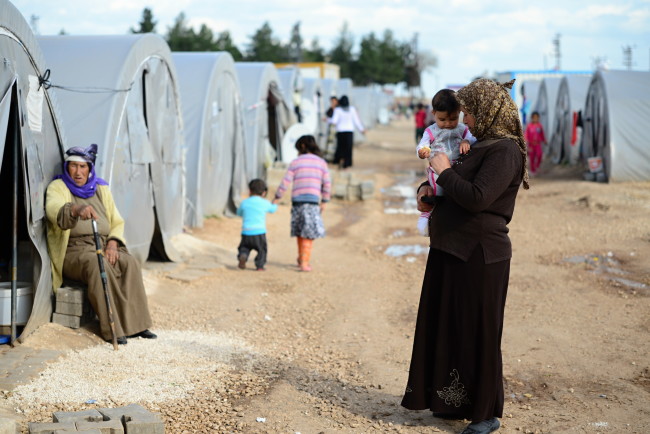-
Localized Responses to Gender-Based Violence Leave Women-led Organizations Behind
October 6, 2021 By Shariq Farooqi
One in five women who is forcibly displaced will experience sexual violence, said Charlotte Slente, Danish Refugee Council Secretary-General at a roundtable on the prevention of gender-based violence in humanitarian crises during the 76th session of the United Nations General Assembly. The high-level roundtable was hosted by the Government of Denmark in partnership with several other international bilateral agencies, as well as women-led organizations.*
Gender-based violence (GBV) activists emphasized that women-led organizations are still not recognized as equitable partners in the fight to end GBV. Women-led work in humanitarian contexts is often patronized and viewed as inferior by larger international organizations instead of as an equitable partnership, said Nyaradzai Gumbodzvanda, Chairperson of the Women’s Coalition of Zimbabwe Humanitarian Cluster and Board Chair of Action Aid International. Furthermore, gender-based violence is often viewed as an isolated issue, when in reality it overlaps with issues related to food, education, water, sanitation, and beyond, she said.
Women-led organizations are often excluded from conversations surrounding fund allocation. “Projects are designed without our input. We have no knowledge of the budgets,” said Fatima Iman, Executive Director of Rehabilitation Empowerment and Better Health Initiative, Nigeria. “We are given specific [financial] amounts with identified number of staff to implement, even if it is not practical.” Local women’s organizations working on the front lines do not receive the funds or support they crucially need to be sustainable, said Iman. “Women-led organizations are used to raise funds, but if I may ask, how many resources raised in the name of women-led organizations actually gets to them?”
Conflict and political unrest and distrust further complicate service delivery in humanitarian settings. “Political crisis makes it extremely hard for women-led organizations to deliver programs — especially those related to GBV,” said Suraya Pakzad, Founder and Executive Director of Voice of Women Organization, Afghanistan. In the wake of Afghanistan’s crisis, there is a lack of commitment to women-led organizations and many organization and movement leaders have been forced into hiding, she said.
When done well, local engagement improves programming and outcomes. In Bangladesh, local actors were consulted early on in GBV program design. Due to their inclusion, the program able to craft more effective, culturally informed strategies. For example, by incorporating culturally relevant and gender-inclusive artistic messaging, international actors were able to better convey themes of GBV prevention and strengthen local ties with Indigenous cultures “on the brink of extinction,” said Muktasree Chakma, Founder and Executive Director of Supporting People and Rebuilding Communities, Bangladesh. Ultimately, this has led to more positive outcomes for those impacted by GBV, she said.
Establishing effective local partnerships can be challenging, requiring thoughtful and sustained investments of time and resources, said the speakers. Nevertheless, long-term flexible support for local women-led organizations is essential to improving localized responses to gender-based violence and enhance long-term capacity building. COVID-19 has only aggravated the burden of GBV in humanitarian settings, said Filippo Grandi, United Nations High Commissioner for Refugees, making the need to engage local organizations all the more urgent.
Read more:
- Methods to address gender-based violence in humanitarian settings
- Toolkit to prevent sexual violence in humanitarian assistance
- COVID-19 impact on gender-based violence
- Exacerbation of Gender-based violence in Conflict areas
*The roundtable was hosted by Danish Refugee Council, United Nations Office for the Coordination of Humanitarian Affairs, United Nations Population Fund, United Nations High Commissioner for Refugees, United Nations Children’s Fund, and the European Union
Photo Credit: Syrian people in refugee camp in Suruc. Procyk Radek/Shutterstock.com.
 A Publication of the Stimson Center.
A Publication of the Stimson Center.



